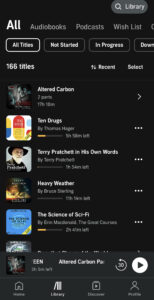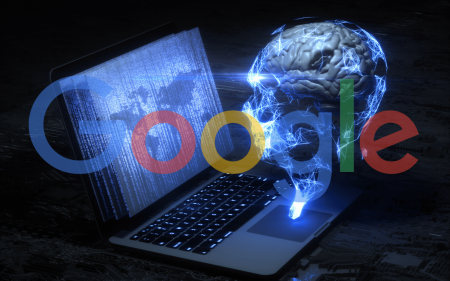

I recently went on a family holiday and read three books. Not necessarily “read” but listened to.
I’ve always been a big reader. I have been my whole life. Reading was my refuge, something I could do that gave me great pleasure and opened my mind to the wonders of the world. Not surprisingly I always loved science fiction.
Holidays are all about reading for me. But this trip was different, not just because it was the first holiday overseas after Covid, but because I was using my new (old) favourite app Audible. Again.
I have been using the audio book app for probably a decade, although I have taken a few year-long breaks when I immersed myself in podcasts. It is a quintessentially mobile app. To my mind, it is one of the great examples of how effective mobile phones have become in our lives.
The great thing about podcasts is you can listen to them while doing other things, as TED.com’s Chris Andersen put it in, well, a podcast interview (listen here or on Spotify). The same is true of Audible. Much like podcasts have become such a dominant and useful media, I think the same of Audible for books.
I have been listening to mostly non-fiction books. Over the December holiday I devoured two books on the American opioid crisis, the excellent American Overdose by former Guardian Africa correspondent Chris McGreal, and Empire of Pain by Patrick Radden Keefe. McGreal is not only a brilliant journalist but a gifted storyteller, and I recommend this as the gateway book to understand just how insane and avoidable this decades-long abuse of the US system was.
Empire of Pain is an excellently researched and written depiction of the Sackler family and their utterly destructive impact on a nation, many of whom are now opioid addicts as a result.
I have ploughed through histories of the Second World War, the Cold War, and reams of science literature. I have always loved Bill Bryson, who often reads his own books, and his At Home and A Short History of Nearly Everything are must-read/listens. So is Salt Or Cod by Mark Kurlansky. Or anything by either of them.
I subscribe to Audible and get a year’s worth of credits, download the books and listen until I need more. When I couldn’t find any interesting non-fiction books, I had a sudden inspiration and bought one of my favourite science fiction novels, the first of Dan Simmons’ truly remarkable Hyperion Cantos.
That is what I was listening to on this recent holiday. It has been such a treat. From Neuromancer by William Gibson (in which he coined the word “cyberspace”) to Iain M Banks’ amazing Culture novels to Stephen Fry reading Douglas Adam’s The Hitchhiker’s Guide to the Galaxy (known as H2G2 by fans, and why I called my own podcast T2S2). I have been revisiting my favourite sci-fi greats. I know, I should include Asimov in that list, it now occurs to me, and I will search for him as soon as I finish writing this. I will also find Frank Herbert’s Dune.
Listening to books is my new favourite way of, well, reading. I can sneak in a 15-minute “read” while driving somewhere, or when doing a grocery shop. An hour-long drive has taken on new joy when I can snatch a few chapters of Gibson or Simmons.
Because I had bought so many of these favourite books when I bought my first Kindle, the Audible version was discounted.
Audible is a brilliant, quintessentially mobile app. You should try it.
* This column originally appeared in the Daily Maverick 168 newspaper.



